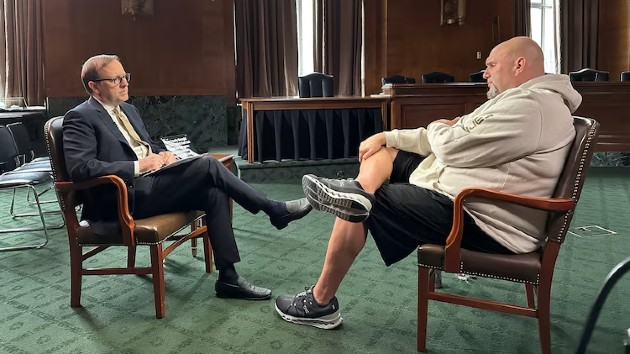Ten days ago, I did something I had been expecting to do for a while. I activated my mother’s power of attorney giving me and my brother authority to look after her finances. Not an easy process by any stretch of the imagination, but one negotiated by hundreds of families every week as parents become too frail to look after their own personal finance affairs.
And in my case, one made more difficult by a bank whose branch staff pushed me from pillar to post as I searched for someone who could help.
The need to trigger the lasting power of attorney for property and financial affairs was prompted by Mum’s admission into hospital with excruciating back pain that had left her virtually immobile.

Helping hand: Jeff Prestridge with his mother, who until recently had proudly looked after her own finances
Although my younger sister Joy and brother Dave had stepped magnificently into the breach to help Mum at home, it was obvious that something was seriously amiss.
The home she took great pride in was not looking as pristine as normal, the fridge was awash with rotting food – and a pile of clothes waited to be washed.
Mum, in her 80s, is a private person who is fiercely independent (apologies if you’re reading this, Mum). Her business is for her eyes only and her home is her castle. God help anyone who tries to help her or ask how her finances are.
Not until a few days ago had I ever seen a statement confirming how much she has tucked away in a savings account.
‘None of your business,’ she would say if I asked for details of her savings. Getting her to allow me to examine her bank statements was a minor miracle.
Sorting out her finances in recent weeks had become a nightmare. Until recently, prudence ruled. As regular as clockwork, Mum transferred £150 a month from her NatWest current account into her savings account – it was all part of a strategy to be financially independent.
‘I want enough tucked away so I can go on a cruise with you and Joy,’ she would say – the last one was cancelled when Mum had to undergo major surgery.
But rising energy bills had put her finances out of kilter. When her energy supplier wanted to increase her direct debit by some ludicrous amount, I told her the only way forward was to reverse the transfer – and start putting money (£250 a month) into her current account so as to stop it going overdrawn.
She understood, I thought. But because of Mum’s mobility issues and the fact that she has only ever banked by going into town and visiting her local (and friendly) NatWest branch, she said she would write to the bank (she’s never used the internet). I’m not sure she did.
A couple of weeks ago, Mum’s back pain, which had been building for weeks despite a cocktail of drugs prescribed by a local GP, became unbearable.
I wrote to her GP in despair urging him to visit Mum – the relationship between our family and the GP (and before him his father) goes back more than 50 years. I gave him my personal details.
All Mum got back was an appointment for a pain clinician to ring her on May 24. Outrageous. Pain needs to be tackled immediately, not in a month’s time. – and should be assessed by someone in person. Eleven days ago, she could take no more. Dave took her to the accident and emergency department at a hospital near Birmingham. It has been brilliant, conducting X-rays and scans in an attempt to get to the bottom of the problem.
Mum remains there (with my elder sister Pauline holding the fort back at Mum’s home), in a ward that can be best described as entertaining. The woman opposite talks to herself day and night – and nothing seems to stop her. A lady from another ward wanted to make a dash home in the middle of the night to celebrate the birthday of her granddaughter. Mum and her neighbour Beryl managed to persuade her it wouldn’t be a good idea.
‘You’re very good at getting people to do what you ask them,’ said Beryl. ‘Well, I have brought four children into this world,’ Mum responded proudly.
An elderly gentleman has also latched on to Mum, waiting for her while she goes to the toilet (very disconcerting). He’s also gone on to Mum’s ward and sat uninvited on someone’s bed. Mum and Beryl have attempted to keep him out by wedging the door shut.
With Mum in hospital, confused and struggling over her finances, the time to trigger the power of attorney was right. Mum needed someone to start making financial decisions on her behalf.
The journey had not been without trauma. The initial application to set one up last year was rejected because I had failed to return a blank page – it was deemed incomplete.
Activating it online via the Office of the Public Guardian was easy with a code and reference number supplied at the time the application was approved. But the problems began when I asked to have access to my mother’s bank and savings accounts with NatWest. I was given a code which I was then meant to present to the bank.
I thought I would give NatWest’s digital assistant ‘Cora’ (available 24/7) a go via my computer. I wish I hadn’t bothered because Cora didn’t recognise the initials LPA or the words ‘lasting’, ‘power’ and ‘attorney’.
Whichever way I phrased my query, Cora didn’t understand. Useless – and I told it so. Strangely, when I went back to use it late last week, it was more responsive. Anyway, I thought I would try my luck in the NatWest branch close to work. After all, it had helped sort out Mum and Dad’s joint account when Stan The Man died in 2017.
But it was a nightmare. I went into the branch at 12:35pm and stood around at one of two unmanned helpdesks waiting for help. I saw that someone was in the back office and that, in all likelihood, they would emerge at some stage. They did. But I was told that my request would have to be dealt with at the counter. ‘I’ll be back, for sure,’ I said. I wasn’t wrong.
I joined the queue, a rather jolly one as it turned out, with someone proclaiming to the person next to them that ‘she loved him’ (they’d just met). A screen to my left, promoting the bank’s digital services, informed me that ‘tomorrow begins today’. ‘It will be tomorrow before I get served,’ I thought.
As the clock struck one o’clock, I arrived at the head of the queue.
After a brief interlude, while the woman with lots of love to offer was encouraged to leave the branch, I explained that I wanted NatWest to add a lasting power of attorney to Mum’s accounts so that I could start to manage her money.
‘You need to go to the front desk,’ I was told. To say I wasn’t impressed is an understatement. A staff member poured oil on the flames by saying she was sorry for my bereavement. ‘No, my mother hasn’t died, I just want to be able to access my mother’s bank account,’ I barked.
I told the staff member who had directed me to the counter queue what I thought of him – ‘unimpressed’. I was told to come back at 2.30pm.
Thankfully, when I returned, staff member Levenia knew her power of attorney onions. After providing proof of who I was, I filled in an application form to add a power of attorney to Mum’s bank account. It took about 20 minutes as she checked the 14 pages of the registered lasting power of attorney to ensure they were properly stamped by the Office of the Public Guardian.
I now have to wait ten days before I get a debit card that will give me access to Mum’s accounts. I’ve already deposited £750 of my own money to ensure her current account doesn’t stray into overdraft.
Sorting out complicated issues such as lasting powers of attorney is better done face-to-face than online. It’s when a bank branch should justify its existence. But it seems that NatWest thinks otherwise.
Its branches have become mere promotional tools for its online and digital services rather than purveyors of advice and help when it is most needed. In my eyes, it’s not good enough. NatWest (see opposite) begs to differ.







